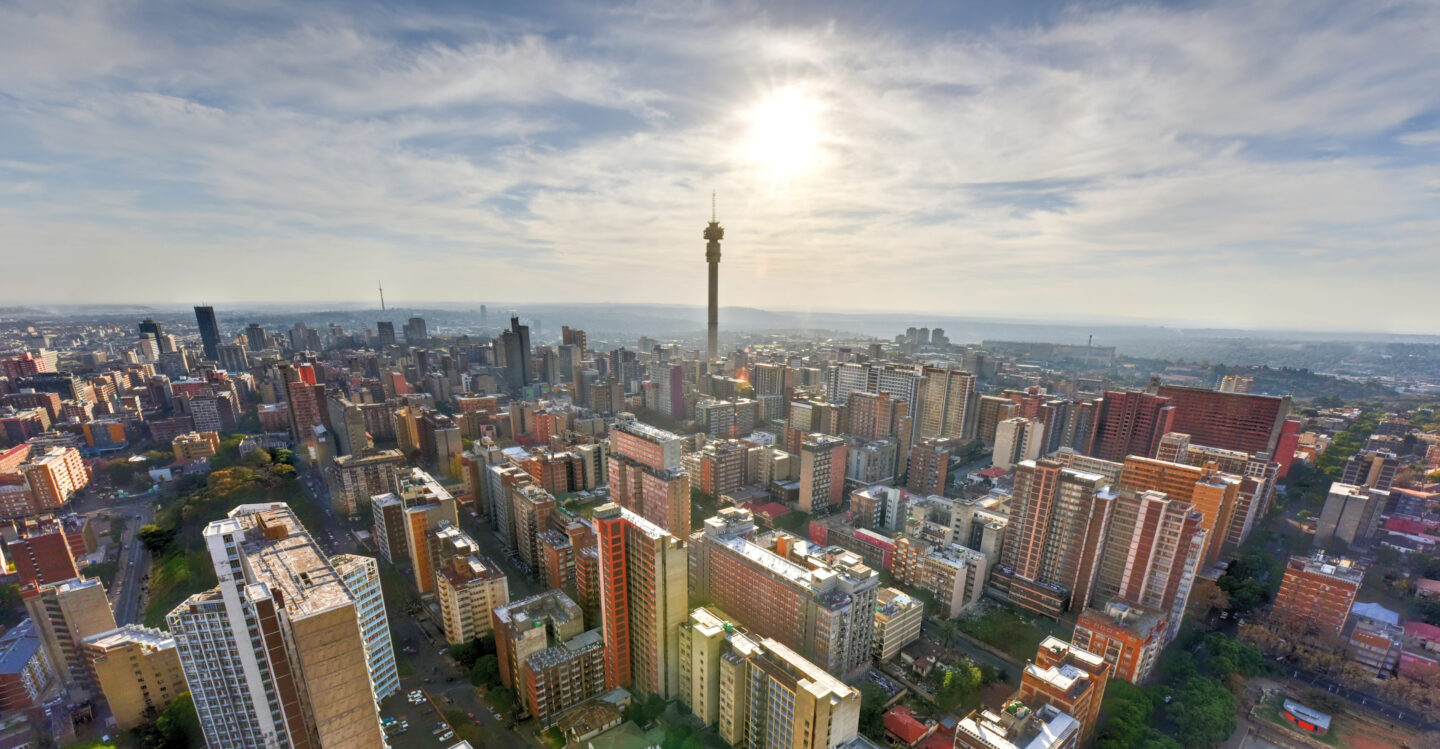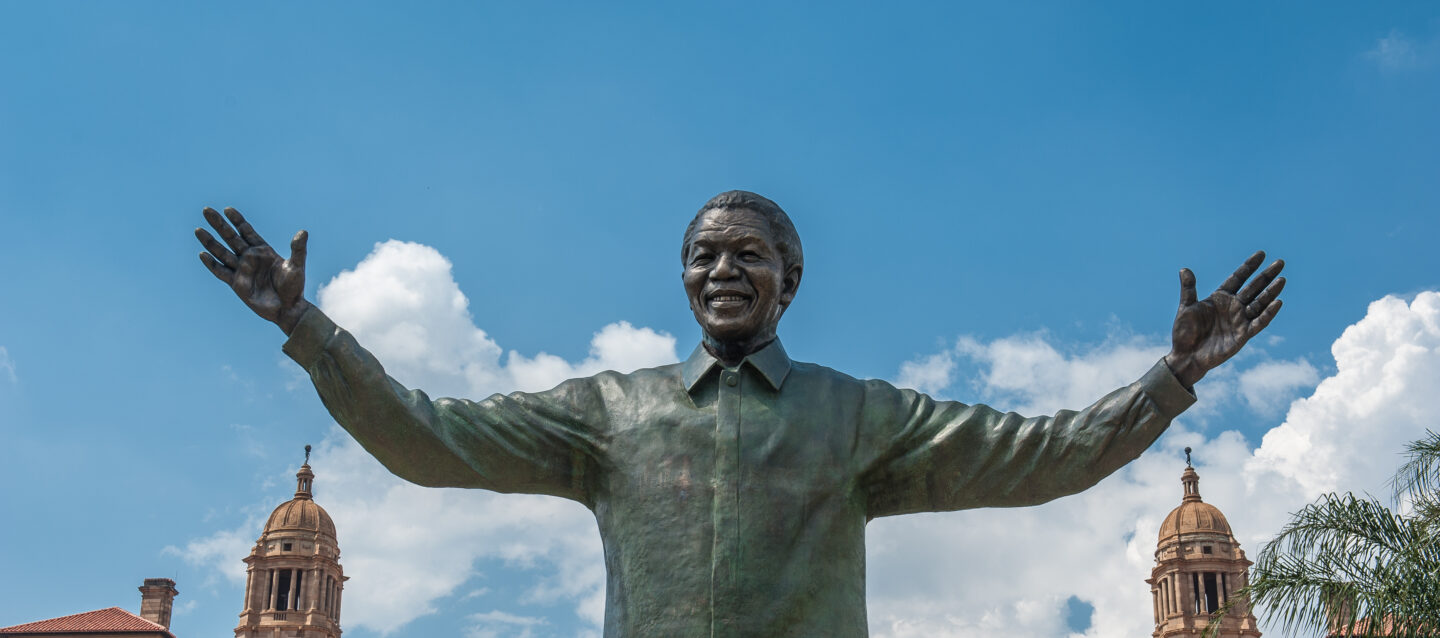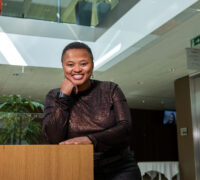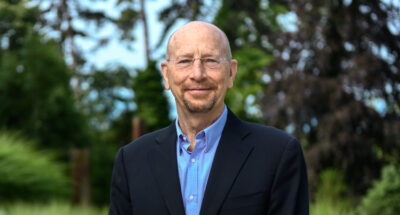
“We were so scared of our IPO”: Leaders Unplugged with former On-CEO Marc Maurer
Marc Maurer shares how ON grew from startup to IPO by defying hype, focusing on purpose, and leading with humility in this candid Leaders Unplugged episode....

Published March 7, 2024 in Women's empowerment • 5 min read
With around 70% of the population projected to be under the age of 35 by 2030, Africa is the world’s youngest and fastest-growing continent. Within this context, there is a new generation of millennial and Gen Z leaders who are challenging the traditional model of authoritarian leadership.
“Millennials and Gen Z are stepping into leadership roles and are willing to speak truth to power to address major issues. I’m excited about what this next generation wants to push – and how they are not afraid to challenge the often-shortsighted leadership paradigms that currently exist,” said Judy Sikuza, CEO of the Mandela Rhodes Foundation.
The Mandela Rhodes Foundation, whose purpose is to build exceptional leadership capacity in Africa, provides a leadership development program and postgraduate scholarships for those who want to use their talents to serve others. The scholars come from 36 African countries and a range of backgrounds. Many have experienced immense hardship; some were child brides, while others have escaped civil war.
“Some of our scholars come from the most excruciating circumstances,” said Sikuza. “They have resilience, persistence, dedication, and an insistence that they will get out. The way they use these experiences as motivation to serve other people is awe-inspiring.”
Based on the four key principles of reconciliation, education, entrepreneurship, and leadership, Sikuza says the program is a space where scholars can breathe. “This is shocking for them in the beginning because they are so used to operating at a level where they just have to keep going. We want them to be able to reflect on some of their experiences so that they can begin to heal – and obtain the closure that allows them to feel more empowered to go out into the world and be impactful.”
One aim of the program is to build a generation of “servant leaders,” who act with integrity even when no one is looking, abide by a moral code of behavior, and who seek to have a positive impact for the greater good, said Sikuza.

“Scholarships give talented people an opportunity to bring their own perspectives in rooms of diverse people.”- Judy Sikuza, CEO of the Mandela Rhodes Foundation
“For me, an ethical leader is someone who views leadership as service to others and not just a way to access a position of power and the related benefits. An ethical leader views themselves as a tool for transformation,” she explained.
Referencing the book, It’s Our Turn to Eat by Michela Wrong, Sikuza said many leaders in post-colonial Africa still put the narrow interests of their tribe ahead of the wider interests of their nation.
Shifting to a new model of leadership, however, won’t be an easy task. From Robert Mugabe, who ruled Zimbabwe for almost 40 years before he was forced to resign aged 93 to Teodoro Obiang Nguema Mbasogo, who has served as President of Equatorial Guinea since 1979, the notion that wise elders make better leaders is especially prevalent across African culture.
If young leaders are to exert influence on the generation of leaders in power, she believes that developing soft skills like emotional intelligence will be key. The program empowers scholars to have courageous conversations in the boardroom and press for structural reforms. “It means making tough decisions that it’s not about putting money in our pockets through corruption but serving the people.”

Sikuza advised aspiring leaders to play a “patience game.” First, they must work to establish trust and show some level of respect to their superiors. Once they have proven their value, they can start to play a more influential role where their managers can take their ideas and implement them.
Another important aspect of this new leadership paradigm is diversity. This involves making space for new voices or amplifying the voices of those who haven’t been heard until now.
Raised by a single mother in South Africa, Sikuza, who was a Mandela Rhodes scholar herself, has always prized education. She studied psychology and holds an MA in organizational psychology from Columbia University in New York, which she completed as a Fulbright scholar. After graduating, she worked in the corporate world for Absa and Investec Bank before moving into the civil society sector where she believed she could have more impact.
Sikuza is a firm believer in the power of scholarships. “They give talented people an opportunity to bring their own perspectives in rooms of diverse people. But this also allows them to be able to learn and grow from others, so they must engage with people who have different views and perspectives,” she said.

“We want our scholars to be able to reflect on some of their experiences so that they can begin to heal – and obtain the closure that allows them to feel more empowered to go out into the world and be impactful.”- Judy Sikuza, CEO of the Mandela Rhodes Foundation
A desire to connect and share experiences with other senior directors to equip herself with the skills to become “an Olympic-level leader” were among her motivations to apply for IMD’s High Performance Leadership (HPL) program, which she attended thanks to the generous support of the Jebsen Family.
Among her takeaways were the importance of secure base leadership and creating a bond with your team that lays the foundation for high performance. Another message that hit home was the value of taking time to grieve losses. Sikuza realized that since taking on the CEO role, she missed interacting with people “on the ground.” HPL made her rethink her priorities to build in time to engage with the Mandela Rhodes scholars since these relationships fuel and motivate her.
As a person who spends part of her job fundraising for scholarships for the Mandela Rhodes program, Sikuza shares her belief that giving is itself an act of leadership, since recipients of the scholarships go on to do work that will benefit society.
“For me, attending the HPL program was transformational,” she said. “I believe those lessons will have a fundamental impact on the future work of the Mandela Rhodes Foundation.”
IMD is grateful to the Jebsen Family Foundation for generously providing these scholarship opportunities.

CEO of the Mandela Rhodes Foundation
A leadership and organization development specialist, Judy believes in the power of education and leadership to liberate and create more humane futures. Beginning her career in the private sector as an Organization Development practitioner, Judy worked for Absa, then Investec Bank. She also consulted in the development sector for Reos Partners, a social enterprise that helps governments, companies, and civil society organizations make progress on their most important complex challenges.

July 8, 2025 • by Alyson Meister, Marc Maurer in Leadership
Marc Maurer shares how ON grew from startup to IPO by defying hype, focusing on purpose, and leading with humility in this candid Leaders Unplugged episode....

July 7, 2025 • by Richard Baldwin in Leadership
The mid-year economic outlook: How to read the first two quarters of Trump...

July 4, 2025 • by Arturo Pasquel in Leadership
Susanne Hundsbæk-Pedersen, Global Head of Pharma Technical Operations at Roche, shares how she has navigated the various pivots in her career, and the importance of curiosity, optimism and energy. ...

July 3, 2025 • by Eric Quintane in Leadership
Entrepreneurial talent who work with other teams often run into trouble with their managers. Here are ways to get the most out of your ‘boundary spanners’...
 Audio available
Audio availableExplore first person business intelligence from top minds curated for a global executive audience